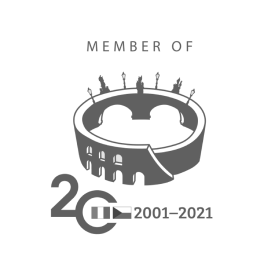
Empty flats and the housing crisis: the law that may be the difference
The Czech government is stuck on a law that should help solve the housing shortage problem in the Czech Republic. Organizations that help people in need of housing have written an appeal to the prime minister, asking for tens of thousands of empty flats to be put on the market.
In fact, there are tens of thousands of flats in the Czech Republic that have been unoccupied for some time. If they came back into circulation, they would help solve the housing shortage of hundreds of thousands of people. This request is supported by more than 40 organizations focused on working with people with housing difficulties, but also prominent personalities on the Czech scene, such as the bishop, the president of the Chamber of Architects, and others, have joined in.
An attempt is therefore being made to stimulate the housing market through the Housing Support Act, which is being drafted by the Ministry for Regional Development. This law provides advice for people in housing difficulties and at the same time a system of guarantees for flat owners.
The State, through the municipalities, guarantees the payment of rent or other expenses in case of hardship. Thanks to this, the owners of the now empty flats will not find themselves in uncertainty. The guarantors, i.e. cities or municipalities, will continuously receive money from the State.
The law has already been submitted to the government but its discussion has been suspended. The call is therefore for the government to pass the law as soon as possible. At the same time, the representatives of the initiative also ask for the opportunity to personally present the issue to Prime Minister Fiala.
The Minister for Regional Development, Ivan Bartoš, calculated that the failure to solve the real estate crisis costs the state four billion crowns per year. He also explained that the law provides for a mapping of the housing situation, which provides valuable support in correctly planning investments in construction and renovation.
The union of cities and municipalities has long pointed out the insufficient state funding of social work in the municipalities. Social work is the exercise of delegated power, which is, however, not fully paid for by the state. According to the union’s investigation, in many cases, the subsidy for the presentation of social services does not even cover 50% of the actual costs. The Local Government Association also emphasized in its comments that the law represents a high administrative burden for municipalities with extensive powers.
The hope is that they will soon return to the discussion and that the proposal will not be distorted from its essential points.
In conclusion, the Czech Republic is at a crucial crossroads when it comes to solving the housing crisis afflicting thousands of citizens. The proposed law on housing support, presented by the Ministry of Regional Development, represents a concrete hope for improving the situation by putting empty flats into circulation and providing guarantees to both owners and tenants in need.
The appeal of more than 40 organizations and influential personalities emphasizes the urgency of passing this law, highlighting the social and economic importance of the measure and showing how failure to implement it would result in significant costs for the state. The law in question not only aims to solve the housing shortage but also provides for a detailed mapping of the housing situation, which is crucial for effective investment planning. It is therefore crucial that the discussion on the law be resumed as soon as possible. The timely approval and proper implementation of the law could, in fact, mark a turning point in the fight against the housing crisis in the Czech Republic, creating a fairer and more sustainable system for all.
Sources: https://www.expats.cz/




